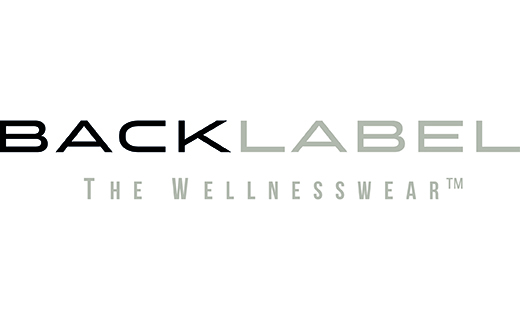

BACK LABEL S.B.a.R.L

Lombardy, Italy
January 2021
Textiles
Manufacturing
Italy,
Scegliere un paese / regione / territorio
Back Label develops and manufactures Wellnesswear (TM) Wellnesswear means Athletic wear, Lounge wear and Yoga wear (Weargrace line) made with textiles that are certified to be safe to wear on direct contact with the skin (Oeko Tex- Icea - GOTS) The materials used are characterized by mixtures of natural fibers (e.g bamboo, seaweed, eucalyptus, milk protein fibers) interwoven with different levels of the most refined quality cottons. When certified synthetic fibers such as elastan have to be used, they are normally employed for elastics, waistbands or other small trimmings and the quantity used is always kept at minimum levels. The use of polyester is normally not contemplated. "Back to Origins, Back to The Way products are supposed to be made, Back to Quality, Back To Nature" is the philosophy of the brand. 100% Made in Italy, Back Label retails its carryover collections only through the spas and boutiques of 5+stars hotels and resorts around the world and it supplies the same clientele with a White Label department that designs and produces custom-made logo wear.
Overall B Impact Score
Governance 15.6
Governance evaluates a company's overall mission, engagement around its social/environmental impact, ethics, and transparency. This section also evaluates the ability of a company to protect their mission and formally consider stakeholders in decision making through their corporate structure (e.g. benefit corporation) or corporate governing documents.
What is this? A company with an Impact Business Model is intentionally designed to create a specific positive outcome for one of its stakeholders - such as workers, community, environment, or customers.
Workers 38.1
Workers evaluates a company’s contributions to its employees’ financial security, health & safety, wellness, career development, and engagement & satisfaction. In addition, this section recognizes business models designed to benefit workers, such as companies that are at least 40% owned by non-executive employees and those that have workforce development programs to support individuals with barriers to employment.
What is this? A company with an Impact Business Model is intentionally designed to create a specific positive outcome for one of its stakeholders - such as workers, community, environment, or customers.
Community 18.0
Community evaluates a company’s engagement with and impact on the communities in which it operates, hires from, and sources from. Topics include diversity, equity & inclusion, economic impact, civic engagement, charitable giving, and supply chain management. In addition, this section recognizes business models that are designed to address specific community-oriented problems, such as poverty alleviation through fair trade sourcing or distribution via microenterprises, producer cooperative models, locally focused economic development, and formal charitable giving commitments.
Environment 32.2
Environment evaluates a company’s overall environmental management practices as well as its impact on the air, climate, water, land, and biodiversity. This includes the direct impact of a company’s operations and, when applicable its supply chain and distribution channels. This section also recognizes companies with environmentally innovative production processes and those that sell products or services that have a positive environmental impact. Some examples might include products and services that create renewable energy, reduce consumption or waste, conserve land or wildlife, provide less toxic alternatives to the market, or educate people about environmental problems.
What is this? A company with an Impact Business Model is intentionally designed to create a specific positive outcome for one of its stakeholders - such as workers, community, environment, or customers.
Customers 1.6
Customers evaluates a company’s stewardship of its customers through the quality of its products and services, ethical marketing, data privacy and security, and feedback channels. In addition, this section recognizes products or services that are designed to address a particular social problem for or through its customers, such as health or educational products, arts & media products, serving underserved customers/clients, and services that improve the social impact of other businesses or organizations.